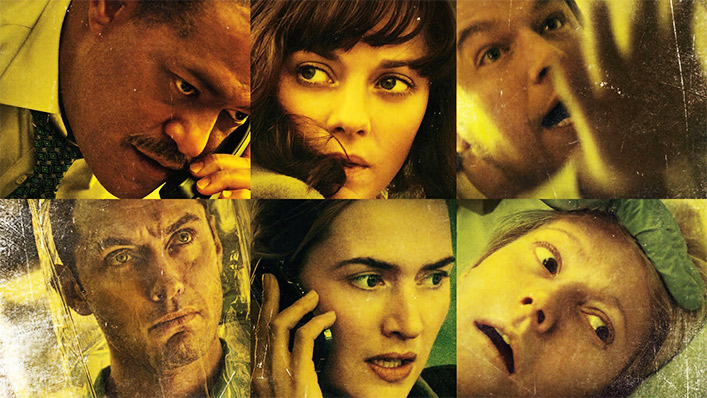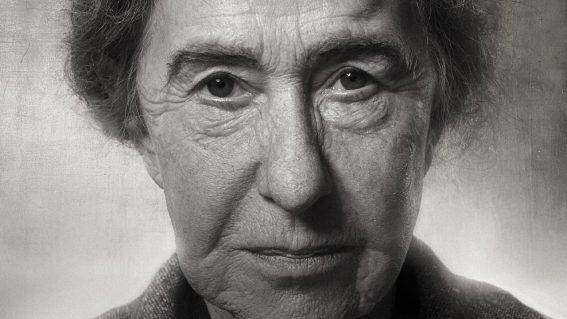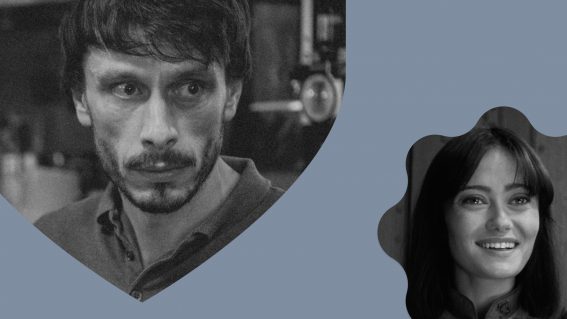From a pandemic to big pharma: every medical thriller directed by Steven Soderbergh

Steven Soderbergh’s pandemic-themed film Contagion has been rediscovered in the era of coronavirus. But it’s not the acclaimed director’s only medical thriller, writes critic Sarah Ward.
Since winning the Palme d’Or for his debut feature Sex, Lies, and Videotape, the prolific Steven Soderbergh has approached his chosen career with gusto, adding a lengthy list of films to his resume. But thanks to COVID-19, the 2011 medical thriller Contagion is the title that will be forever synonymous with his name.
Contagion wasn’t the first movie to explore the impact of a viral outbreak. From sombre medical dramas to dystopian sci-fi and every zombie horror flick ever made, humanity’s possible response to the spread of an infectious illness has been well-theorised throughout cinema history. But this star-studded film (with a cast including Kate Winslet, Matt Damon, Gwyneth Paltrow, Jude Law, Laurence Fishburne, Bryan Cranston and Marion Cotillard) rings particularly true in these coronavirus-heavy times.
Set to an anxious electronic score by Cliff Martinez and shot with naturalistic steeliness by Soderbergh himself (under his pseudonym Peter Andrews), Contagion takes a no-nonsense procedural approach that bristles with realism.
Contagion was hugely prophetic
Considerable as their roster of on-screen talent is, Soderbergh and his regular screenwriter Scott Z. Burns treat the virus as their protagonist, focusing on the infection and its spread over any one figure. As the film charts the progression from the outbreak’s first appearance through to its global proliferation, it crosses paths with those affected in different ways, the doctors and scientists working to stem the impact and journalists covering the story.
Meticulously and methodically, Soderbergh connects the dots between various players. When Fishburne’s CDC virologist utters the term “social distancing” and Law’s blogger touts an unproven drug as a miracle cure, Contagion doesn’t just seem true-to-life, but prophetic.
Having predicted a situation that the world now appears to be living, calling Contagion eerily astute is an understatement. While the world will always remember the film that gave us Paltrow’s surgically removed skull—not to be confused with Seven, the movie that gave us her severed head—Soderbergh’s other big-screen forays into the genre have also proven smart, perceptive and brimming with accurate insights.
Side Effects explores the pharmaceutical industry
Soderbergh returned to medical thriller territory for 2013’s Side Effects to take aim at the pharmaceutical industry, within the bounds of a Hitchcockian psychological thriller. The premise: when her husband (Tatum) returns home after a prison stint for insider trading, Emily Taylor (Rooney Mara) is plagued with unease. She’s soon in the care of psychiatrist Jonathan Banks (Jude Law), who prescribes a series of antidepressants. But, as the film’s title makes plain, her new drug routine isn’t without repercussions.
Burns’ taut script navigates lurid and melodramatic twists and turns, doled out piece by piece—like a puzzle to be solved. Once again lensing his own feature, Soderbergh’s cinematography is cool, sleek and disquieting, while Thomas Newman’s score bristles with festering anxiety. The mood is tense and stressed yet glossy and slick.
The idea that medicinal drugs required for serious health issues can be advertised like any other item—promoted on insistent billboards and spruiked via gleaming commercials—is alarming. However, as Soderbergh reminds viewers with an appropriate sense of alarm, this is an everyday reality in the US.
The movie’s canny insights into the pharmaceutical industry don’t end there, exploring the widespread use of mood-altering prescriptions and the fading line between doctors and salespeople, too. And while the film doesn’t touch upon a pandemic situation, its condemnation of the communication of medical advice through mass marketing feels particularly pertinent to the world’s present situation, when the American President is on television daily hawking an unproven drug as the solution to COVID-19.
Unsane depicts extreme gaslighting
As well as shooting 2018’s Unsane in secret, Soderberg—again acting as his own cinematographer—filmed the entire movie on an iPhone 7 Plus. Both leave an imprint on the end result. How better to make a film about a woman held in a mental institution against her will than to do so surreptitiously? How better to convey the confinement and claustrophobia that comes with being trapped, than using a device that can peer as closely and intimately as any camera can manage?
After moving across the country to escape a stalker, Sawyer Valentini (Claire Foy) struggles to adjust. All is well at work, where she earns praise from her boss, but she still thinks she spies her attacker (Joshua Leonard) everywhere. As many people would—especially in a country that, to borrow an observation from Side Effects’ Dr Banks, sees going to a psychiatrist as evidence that someone is getting better—Sawyer makes a counselling appointment. But, when her session at Highland Creek Behavioural Centre comes to an end, she’s tricked into signing admission papers.
Soderbergh and screenwriters Jonathan Bernstein and James Greer (The Spy Next Door, Just My Luck) approach Sawyer’s ordeal in the nightmarish fashion it demands, with the director again leaping into psychological thriller territory. The character’s pleas for help—her demands to be set free, her insistence that she’s being held against her will and her terror at discovering that one of the facility’s orderlies just might be her stalker—all fall on deaf ears. In the process, the film finds an urgent and immediate way to demonstrate gaslighting at its most extreme, while also scrutinising the treatment decisions behind her predicament.
Soderbergh has medical thrillers down to a fine art
Medical centres that chase profits by any means possible, staff who blindly follow company procedure rather than putting their patients’ needs first, a system that turns the health and illness of others into a way of making corporate profits—they all earn Unsane’s well-deserved ire. So too does the notion that someone’s sanity can be seen as a commodity, able to be squeezed and ostensibly sold by unscrupulous facilities.
Unsane’s potency shouldn’t come as a surprise; it’s typical Soderbergh. As also seen in Contagion and Side Effects, that’s his medical thriller playbook: heightened scenarios, clear-cut real-life parallels, and grimly relevant observations, all combined in one supremely entertaining and unnerving package.













